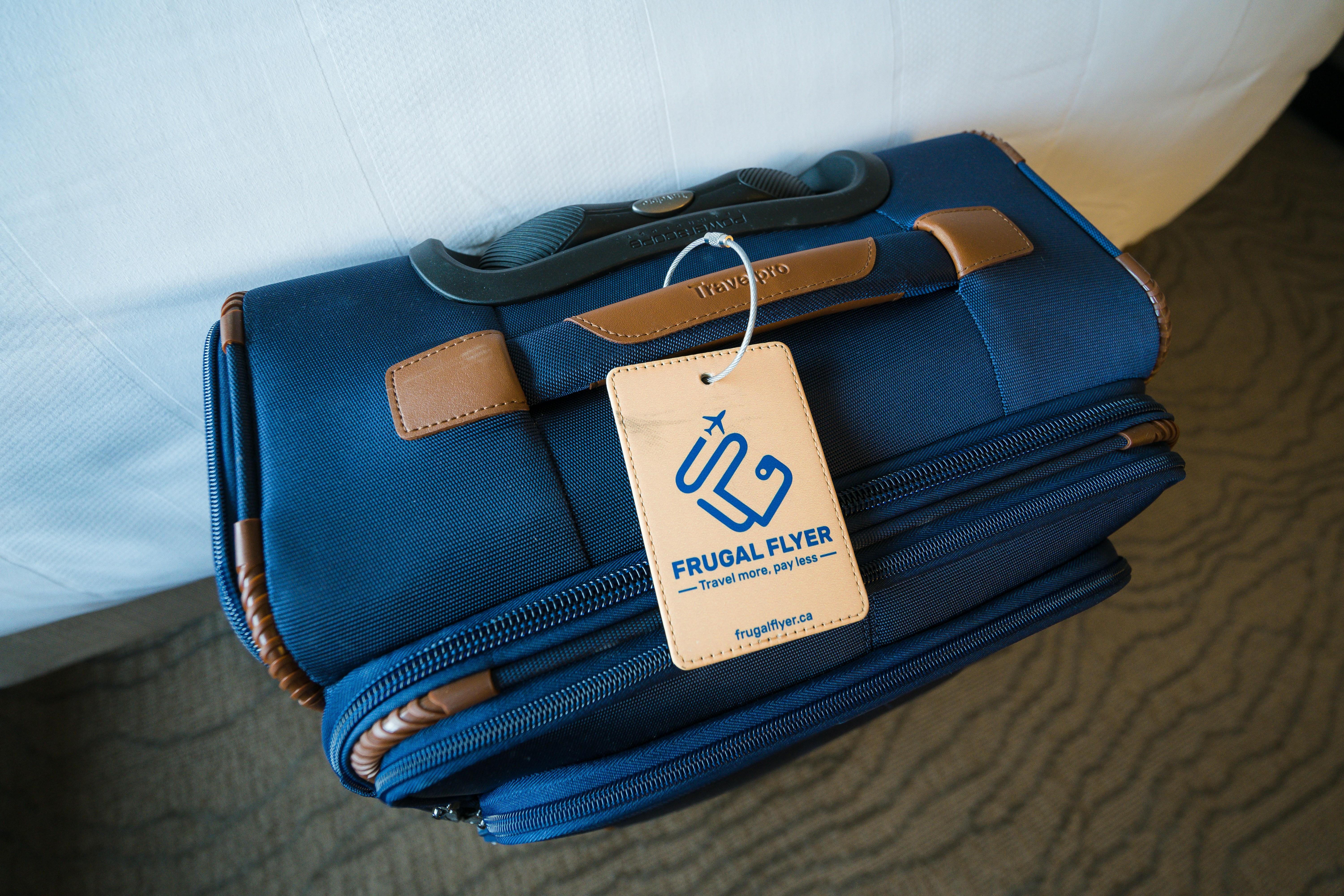
 Introduction: Why Taking a Vacation is Essential
Introduction: Why Taking a Vacation is Essential
In today’s fast-paced world, the importance of taking a vacation cannot be understated. It serves not only as a break from daily routines but also as an essential component for mental health and general well-being. Vacations provide individuals with the opportunity to step back, recharge, and rediscover their interests outside of work. As stress levels rise due to busy schedules and personal responsibilities, the necessity for regular breaks becomes ever clearer. This is where the mental health benefits of taking vacations come into play.
One of the most significant advantages of vacationing is stress relief. The time away from the pressures of work allows individuals to unwind and foster a sense of tranquility. Engaging in leisure activities, whether it’s enjoying nature, traveling to new places, or simply spending time with loved ones, can yield positive effects on both physical and mental well-being. Studies have shown that individuals who take regular vacations report lower levels of stress and increased happiness, underscoring the essential role vacations play in managing stress.
Moreover, vacations contribute to a healthier work-life balance. In a society where the line between professional and personal life often blurs, taking time off allows employees to re-establish boundaries. This balanced approach not only enhances productivity when one returns to work but also fosters greater job satisfaction. Employees who make it a priority to take vacations are likely to experience improved focus and creativity upon their return, further exemplifying the transformative impact of a well-timed break.
In summary, vacations are vital for maintaining mental health benefits, providing stress relief, and achieving a proper work-life balance. Embracing the necessity of regular breaks is not merely a luxury; it is an essential investment in personal well-being and overall productivity.
The Psychological Benefits of Taking a Break
Vacations have long been celebrated not just for their recreational value but also for their substantial contributions to mental health. One of the most pronounced benefits of taking a break from our daily routines is the significant reduction in stress levels. Research indicates that individuals who take vacations experience lower stress when compared to those who do not. A study published in the Journal of Happiness Studies found that taking time off work can lead to a marked decrease in stress and anxiety, creating a more positive mental health outlook upon return.
The connection between vacations and improved mental well-being is evident in the correlation to increased overall mood. When individuals immerse themselves in new environments or activities, they report feelings of happiness and contentment. According to a survey conducted by the U.S. Travel Association, 86% of respondents found that taking vacations enhanced their mood, which speaks to the importance of breaks in maintaining psychological wellness.
Another remarkable benefit of vacationing is the creativity boost often experienced during and after a trip. Engaging with diverse cultures and landscapes can spark innovative ideas and fresh perspectives. A study from the Creative Education Journal demonstrated that individuals who took regular breaks from work displayed higher levels of creativity compared to their more overburdened peers. The time spent away allows the mind to recharge, paving the way for enhanced problem-solving abilities and originality in thinking.
In summary, the psychological benefits of taking vacations extend far beyond relaxation. The mental health improvements associated with stress reduction, increased mood, and a significant creativity boost highlight the necessity of taking breaks in our lives. By prioritizing time off, individuals can foster a healthier, more balanced lifestyle that promotes not only personal well-being but also enhances professional productivity and creativity.
Physical Health Advantages of Taking Time Off
Vacations serve as a vital component of maintaining one’s physical well-being, offering numerous health benefits that contribute to overall better health. Engaging in travel and stepping away from daily responsibilities has been linked to lowered blood pressure, improved heart health, and increased energy levels. Research conducted by the Framingham Heart Study suggests that men who do not take vacations are 30% more likely to experience a heart attack compared to those who take time off regularly. This indicates a clear connection between travel and cardiovascular health.
One of the primary reasons vacations improve physical health is the reduction of stress. Chronic stress has been shown to elevate blood pressure and diminish overall heart function. When individuals take time off, they often experience a significant decrease in stress levels. Activities such as relaxing on a beach or hiking in nature contribute to this decline in stress, promoting better heart health and ultimately enhancing one’s physical well-being.
In addition, travel has been associated with improved energy levels. A study published in the journal “Psychosomatic Medicine” found that individuals who took vacations reported higher energy levels and lower fatigue post-trip. The act of exploring new environments and engaging in leisure activities can invigorate the body, providing the much-needed rejuvenation that many individuals lack due to their daily routines.
The health benefits of travel extend beyond just immediate relaxation; they can have lasting impacts on physical well-being. Taking vacations encourages a more active lifestyle, as many activities associated with travel involve physical exertion, such as walking, swimming, or participating in sports. These activities contribute to better overall fitness, reinforcing the importance of vacations in maintaining and promoting physical health.
Building Stronger Relationships Through Travel
Taking a vacation often serves as a catalyst for enhancing personal relationships, whether with family, friends, or significant others. The act of traveling together can facilitate bonding experiences that create lasting memories, contributing to overall relationship enhancement. Shared experiences during vacations allow individuals to relate to one another in meaningful ways, deepening their emotional connections.
When individuals embark on a journey, they typically experience a blend of joy, challenge, and adventure. These shared emotions can lead to the development of a unique narrative that strengthens bonds. For example, navigating unfamiliar places, trying new foods, or overcoming travel hurdles can lead to moments of laughter and collaboration. Such experiences often act as glue that holds relationships together, fostering a sense of unity and trust. In the context of family vacations, the collective experience serves as a platform for open communication, allowing family members to share their thoughts and feelings in a relaxed environment.
Traveling with friends can also promote relationship enhancement by allowing individuals to explore shared interests in new settings. The excitement of discovering different cultures or engaging in activities outside one’s daily routine creates an environment ripe for connection. Engaging in conversations about the experiences shared can pave the way for deeper relationships, as individuals may find themselves discussing aspects of their lives that they might not have explored otherwise.
Ultimately, taking vacations together provides an opportunity to strengthen existing relationships through memories that will be cherished for years to come. Whether through family getaways or trips with friends, the value of shared experiences in building stronger ties cannot be overstated. As individuals reflect on their journeys, they often find that these moments significantly enhance their connections, contributing to overall well-being and happiness.
Boosting Productivity After a Vacation
Taking time off from work to enjoy a vacation can have profound effects on work productivity and overall job performance. The correlation between time spent away from the office and enhanced efficiency upon return is well-documented in various studies. When individuals disengage from their daily responsibilities, they allow themselves the opportunity to recharge mentally and physically. This process of renewal is essential for maintaining high levels of motivation and creativity in the workplace.
During a vacation, employees are exposed to new experiences, environments, and perspectives that can rejuvenate their thinking. This mental break allows individuals to step back from the pressures of their jobs, which can often lead to burnout. By removing themselves from their usual routines, workers can gain clarity, allowing for improved focus when they return. This rejuvenation, manifesting from a well-timed break, often translates to a higher return on investment (ROI) in terms of productivity. Employees who return from a vacation are typically more energized and equipped to tackle challenges with renewed enthusiasm.
Furthermore, a vacation can serve as a strategic tool for fostering innovation within a workforce. Exposure to different cultures, ideas, and forms of leisure can inspire new approaches to problem-solving and collaboration. Employees returning from vacations often bring fresh ideas and perspectives that can lead to more efficient work processes. This not only benefits the individual but also enhances the overall productivity of their teams and organizations.
In conclusion, the advantages of taking a break extend far beyond mere leisure; they play a significant role in boosting work productivity. Allowing employees the opportunity to recharge can lead to meaningful improvements in their performance, making vacation time a valuable investment in the workforce’s success.
Exploring New Cultures and Perspectives
Traveling offers a profound opportunity to experience cultural exposure that can significantly enhance personal growth. When individuals step into new environments, they often encounter different lifestyles, traditions, and ways of thinking. This immersion in diverse cultures is not just about visiting new places; it is a journey that encourages individuals to challenge their perspectives and reflect on their own beliefs.
As travelers interact with locals, sample native cuisines, and participate in traditional festivities, they gain insights that are often unattainable through books or documentaries. Such experiences foster an understanding of the world that goes beyond surface-level knowledge. Cultural exposure enables travelers to appreciate the intricacies of social dynamics, art, music, and language variations in different regions, enriching their worldview.
Additionally, exploring new cultures promotes empathy and adaptability. By witnessing the struggles and triumphs of people from varied backgrounds, travelers learn the value of resilience and community. This understanding can inspire individuals to adopt more inclusive attitudes and behaviors in their daily lives, enhancing their personal development. Engaging with different belief systems, practices, and lifestyles can also spur self-reflection, prompting individuals to reconsider their own choices and priorities.
In traveling, the act itself becomes a form of transformative education. The lessons learned extend far beyond the trip’s itinerary. Consequently, this cultural exposure not only broadens one’s horizons but also cultivates a deeper appreciation for humanity’s diverse experiences. In this way, the act of taking a vacation can catalyze long-lasting personal growth, empowering individuals to return home not just as tourists but as more enlightened and empathetic global citizens.
Planning Your Ideal Vacation: Tips and Tricks
Planning a successful vacation requires careful consideration and organization. To begin with, one of the essential vacation planning tips is to set a realistic budget. This involves assessing your finances and deciding how much you are willing to spend on transportation, accommodation, food, and activities. To avoid overspending, it is advisable to prioritize your expenses and allocate funds accordingly. Researching different pricing options can also help you stick to your budget while still enjoying your trip.
Next, choosing the right destination is key. Factors such as the time of year, local climate, and personal interests should influence your choice. Some destinations are more enjoyable during specific seasons, so ensure to consider weather conditions and off-peak travel times, which often lead to lower prices. Whether you are looking for relaxation on a beach, adventure in nature, or cultural experiences in a city, aligning your destination with your preferences will enhance the enjoyment of your vacation.
Another vital aspect of vacation planning is timing. Booking your travels well in advance can lead to better deals, particularly for flights and accommodations. Keep an eye out for discounts and special offers, especially during the low travel season. Utilizing online tools can assist you in monitoring fare changes and finding the best rates. Additionally, consider flexible travel dates as they can significantly impact overall costs, offering a broad range of options for budget-friendly travel.
Lastly, stay organized with a checklist to keep track of critical tasks such as making reservations, preparing necessary documents, and packing. This systematic approach ensures that your vacation planning is thorough, reducing stress and allowing for a more enjoyable travel experience.
Overcoming Common Vacation Barriers
Taking a vacation can provide numerous benefits, but many individuals encounter various obstacles that deter them from enjoying a well-deserved break. Among these challenges, financial constraints, time issues, and fear of missing out (FOMO) frequently emerge as significant barriers to planning a getaway.
Financial concerns are often at the forefront of vacation planning hurdles. Many people assume that affording a getaway is beyond their means, leading to a reluctance to consider travel altogether. However, practical solutions exist that can help alleviate this anxiety. Budgeting for vacations in advance, exploring cost-effective travel options, and taking advantage of promotional deals are all strategies that can make travel more accessible. By prioritizing travel in personal finances and considering off-peak seasons, individuals can discover ways to enjoy vacations without straining their budget.
Time constraints can also impede the ability to take time off for leisure. Many individuals feel overwhelmed by work obligations and responsibilities, leading to the perception that a break is not feasible. In addressing this barrier, it is essential to recognize the value of scheduling time off and planning vacations well in advance. Taking short, weekend getaways can also serve as an effective compromise, allowing for a rejuvenating experience without the commitment of an extended absence from work. Additionally, advocating for a better work-life balance can contribute to more opportunities for leisure time.
Lastly, the fear of missing out (FOMO) can create significant anxiety when considering taking time away from work or social obligations. Individuals may worry that stepping away will result in falling behind or losing touch with work or friends. It is important to remember that taking breaks is not only essential for personal well-being but can also enhance productivity and creativity upon return. Embracing the idea of overcoming vacation anxiety can lead to a healthier mindset regarding the importance of rest and rejuvenation.
Conclusion: Make Taking a Vacation a Priority
As we’ve explored throughout this blog post, the importance of vacations cannot be overstated. Taking time away from the daily grind is essential for rejuvenating the mind, body, and spirit. Vacations offer an opportunity to reduce stress, enhance creativity, and improve overall well-being. By stepping away from work responsibilities and daily routines, individuals can gain a fresh perspective that ultimately contributes to increased productivity and life satisfaction.
It’s crucial to prioritize self-care, and vacations play an integral role in this process. Engaging in recreational activities and connecting with loved ones can significantly improve mental health and emotional resilience. The benefits we uncovered demonstrate that vacations are not merely an indulgence but a necessity for a balanced and healthy lifestyle. Thus, making time for travel, exploration, or a simple getaway should be seen as an investment in oneself.
As you reflect on these insights, we encourage you to prioritize taking vacations in your own life. Consider planning your next getaway, whether it’s a weekend retreat or an international adventure. Share your vacation plans or past experiences with us in the comments section below to inspire others to embrace the transformative power of travel. Together, let’s advocate for the robust benefits of taking time off, ensuring that more individuals understand the value of stepping away to recharge and refresh. Remember, making vacations a priority is a pivotal step towards achieving both personal and professional happiness.













